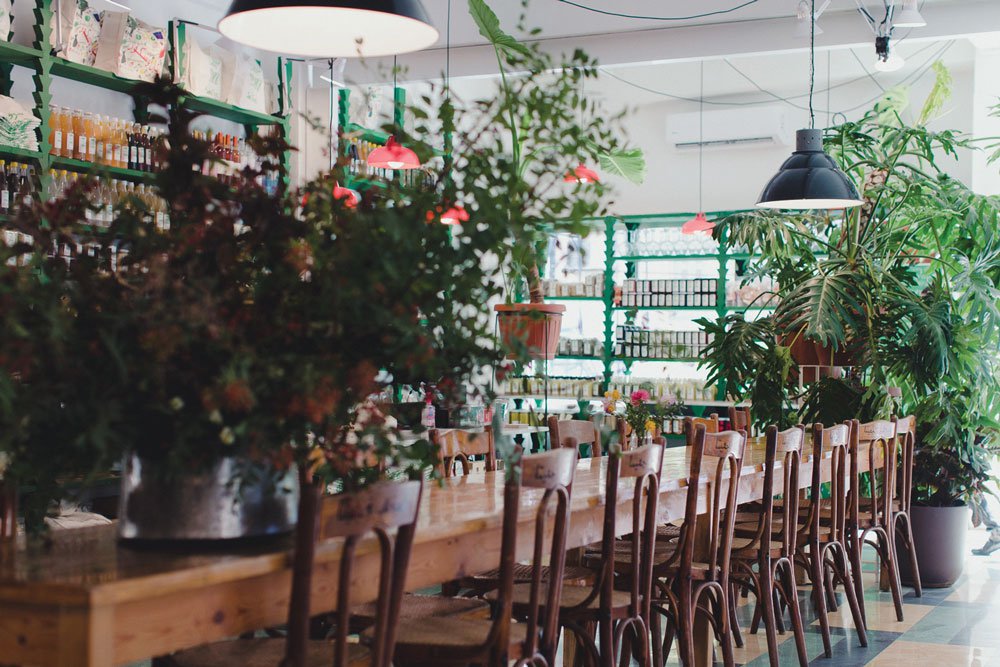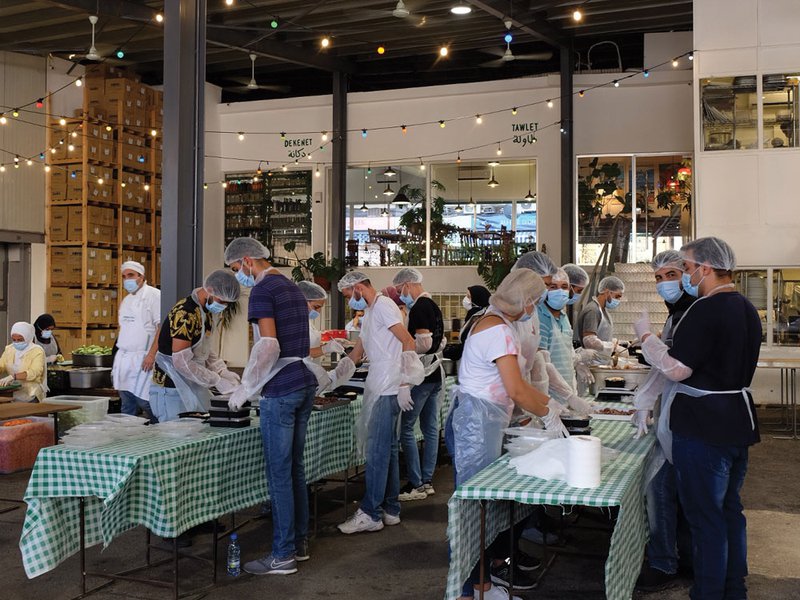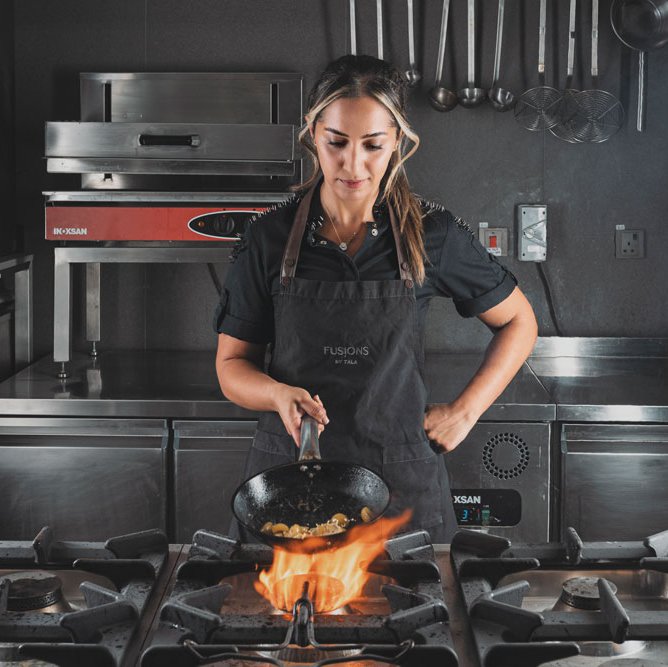Make food, not war,” culinary entrepreneur and social activist Kamal Mouzawak echoes his culinary enterprise’s slogan before signing off on our video chat.
Born into a family of farmers during the Lebanese civil war, Kamal lived a paradoxical life between food’s nurturing nature and war’s constant threat. Food is what he has always known, and what he chooses to use as a tool for the greater good.
It has now been nearly two decades since Kamal founded Lebanon’s first farmers’ market, Souk El Tayeb, to support local, sustainable agriculture, small-scale farmers and producers, and to play his part in mending a once broken community through one of life’s simplest pleasures: food.
“We [eat food] every day, so why not build around it and find common grounds?” he asks rhetorically.
Through the market, Lebanon’s colourful culinary heritage – stretching across the coastline and deep into the mountains – converges at the heart of Beirut. Apart from purchasing seasonal fruits and vegetables, preserved foods (mouneh), or handmade goods, visitors to the market (re)discover the country’s rich offerings through the hands of women and men whom Kamal refers to as “the doers that keep the conversation going”. Whether it’s Rita’s organic essential oils, Haidar’s hot sauces, Rima’s saj, Maurice’s honey, Georgette’s gluten-free goodies, Ziad’s recycled glassware, or Sonia’s Armenian delicacies, every item sold at the market tells the story of a local farmer or producer and the area from which they come – be it Dekweneh, Nabatiyeh, Aley, Jdeide, Safra, Daraya or Burj Hammoud.
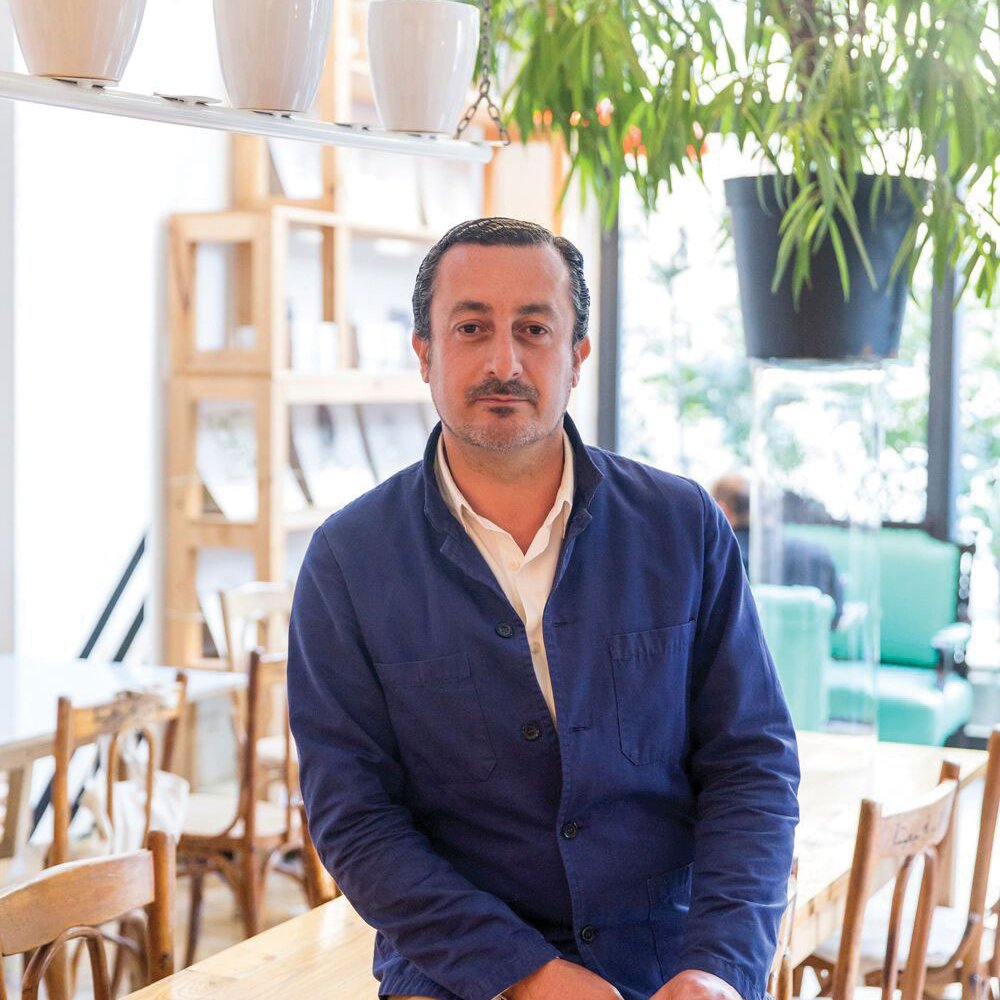
Kamal Mouzawak
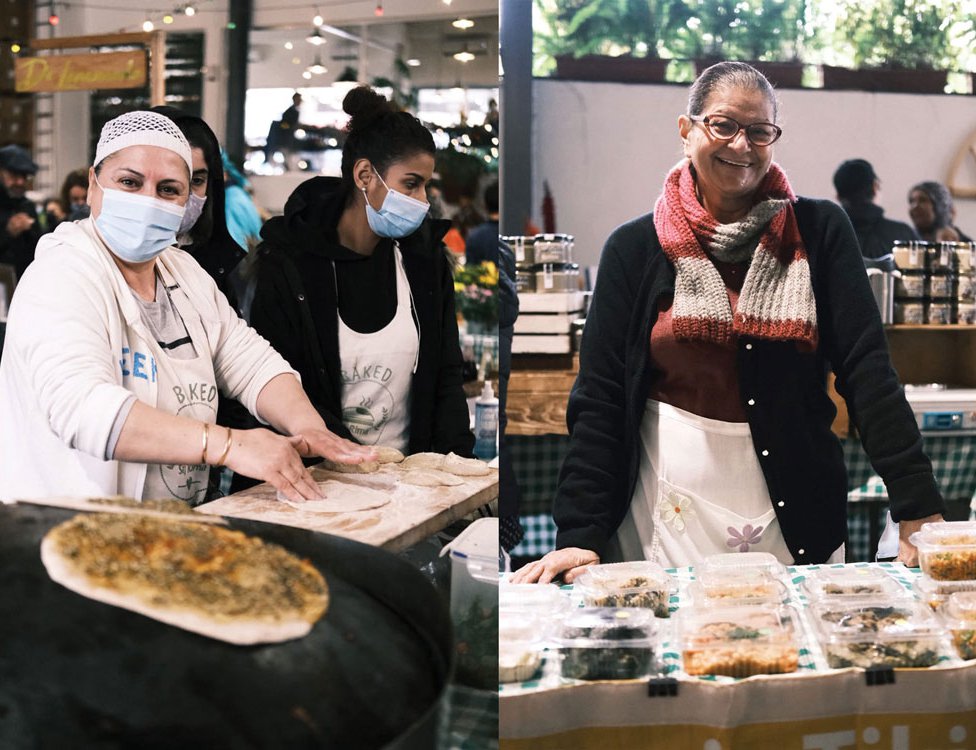
Rima Massoud and Sonia Tikidjian from Souk El Tayeb's farmers' market
Since its launch, Souk El Tayeb has grown into a collective of restaurants, B&Bs and social enterprises bound by one aim: preserving Lebanon’s traditions and heritage by uniting cooks, farmers and artisans.
One of them is Tawlet, the Souk’s farmers’ kitchen, which opened in 2009 in one of Beirut’s iconic neighbourhoods, Mar Mikhael. Its weekly menu features regional specialities – prepared by women, many of whom are refugees, representing their hometowns – such as Ammiqi kafta naye (raw minced meat with fi ne bulgur and spices), Trabulsi bemiyeh bi zeit (okra with tomato paste and olive oil), Syrian horaa osbao, (lentil stew with pomegranate molasses) and Beiruti fattet makdous (roasted aubergines with yoghurt).
The women have become the face of Tawlet, amassing a cult following of people craving farm-to-table home cooking. “They are the guardians of our traditions,” says Kamal. “By making people rediscover the produce of their region, these women are making a crucial contribution to their families, our society and the economy. They are important on many levels.”
Tawlet does more than just serve ingredients on a plate; the faces behind the aprons, the inviting open-style kitchen, the bespoke shop displaying the farmers’ markets’ products and the handmade artisanal décor present an unpretentious way of dining out that inspires communal eating and encourages conversation with one’s neighbour, transcending social, political or geographical barriers.
As of January 2022, Tawlet touched down in Paris, France. “While my dream was to adopt Tawlet’s model of celebrating local domestic cuisine in every country, I soon realised it would take effort and time,” explains Kamal. “I said to myself, ‘We should be doing what we already know and do, a Lebanese Tawlet’.”
A Lebanese Tawlet it is, indeed. Nestled in the City of Lights’ 11th arrondissement, the social enterprise’s newest location celebrates a specific region in Lebanon each day through seasonal produce and authentic home cooking. With every mouthful of mujaddara, shorba, kibbeh and kechek, everyone who walks through the door experiences Lebanese fare beyond the typical street food and mezze.
“We also host a Beiruti brunch on weekends and repeat the same pattern every week,” says Kamal. “There’s been a lot of excitement and curiosity to try Lebanese home cuisine.”
"We don't need to look for sophisticated ways to make the world a better place."
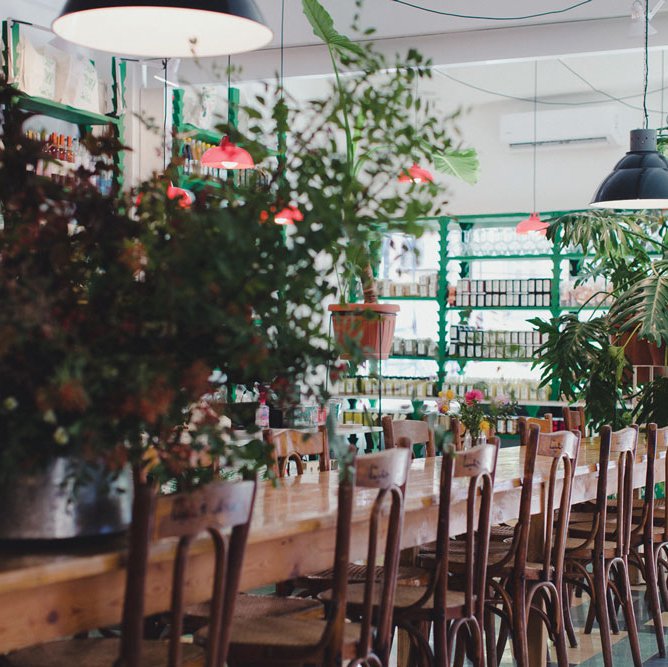
Tawlet Mar Mikhael
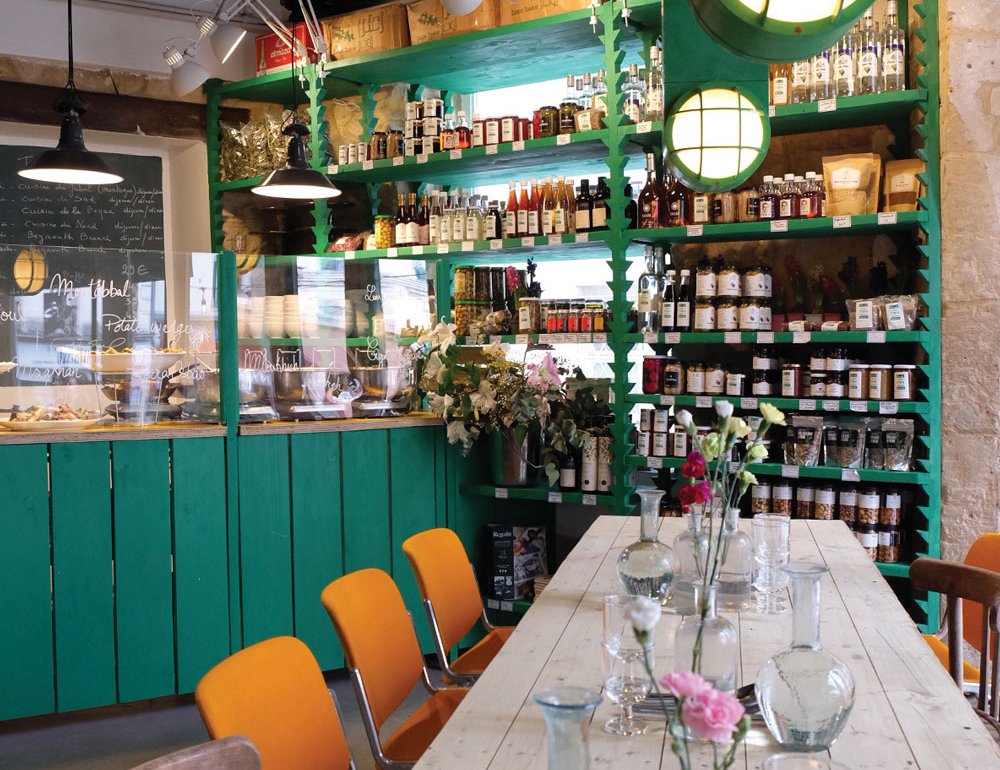
Tawlet Paris
Kamal and the Souk El Tayeb team’s efforts earned them global praise, most recently at the MENA’s 50 Best Restaurants awards in Abu Dhabi, with Kamal awarded the first Foodics Icon Award for his achievements and Tawlet’s original location of Mar Mikhael ranking 28th on the 50 Best Restaurants list.
“I am very proud of the recognition for the great work of the Tawlet team,” he says. “It’s much deserved, especially with what’s been going on in Lebanon. It’s also touching to see the F&B industry recognising the celebration of the simplicity of tradition as a viable model, which normally doesn’t fit its standards.”
If there’s one thing to recognise Kamal and his team by, it’s their unwavering devotion to employing food as a means to serve a greater cause. A mandate that was massively reinforced in the aftermath of the catastrophic August blast that devastated Beirut in 2020. Like hundreds of thousands of people, Kamal and the team suffered unimaginable loss. Yet, they poured their grief into lending a helping hand. “When there’s a problem, what do you do? You either think of loss, or you find solutions,” he says. “It was as simple as that.”
Out came Matbkah El Kell, a community kitchen that distributes thousands of meals to food-insecure households with the help of local non-profits. The donated meals are prepared by the kitchen’s staff with the support of Tawlet’s cooks, volunteers and cash-for-work hires (an initiative that provides temporary employment to people from disadvantaged communities).
“If we were builders, we would’ve helped people build their homes back,” says Kamal. “But, we’re cooks. So we started cooking for those in need. We don’t need to look for sophisticated ways to make the world a better place.”
Their do-good ventures sweetened Lebanon, and now France. Could the UAE be the next stop for Kamal and the Souk el Tayeb family?
“Our food pop-ups in the UAE have always been met by a warm welcome. I’m very thankful for that,” he gushes. “I would dream of establishing something [in the UAE] like a farmer’s market for local producers or something around food processing and cooking.”
Restaurateur, entrepreneur, activist, agent of change – whichever way you refer to Kamal, one thing is certain: his advocacy for the underrepresented and efforts to share the legacy of those who are the driving force behind Lebanon’s culinary wealth are proof that food can nourish more than just our gut.
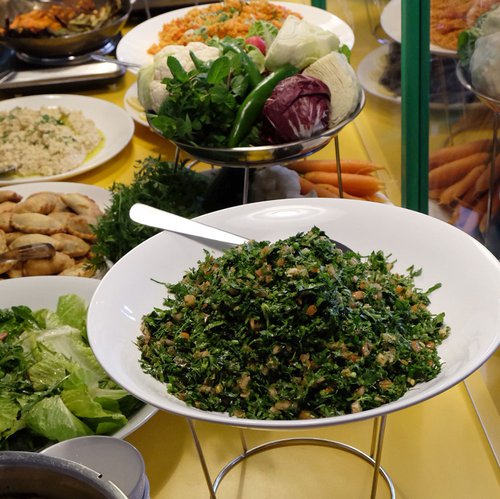
Kamal’s favourite dish is tabbouleh, which as his journalist friend describes, is a combination of many competing elements that cannot exist without each other – just like Lebanon.
@kamalmouzawak | @soukeltayeb
